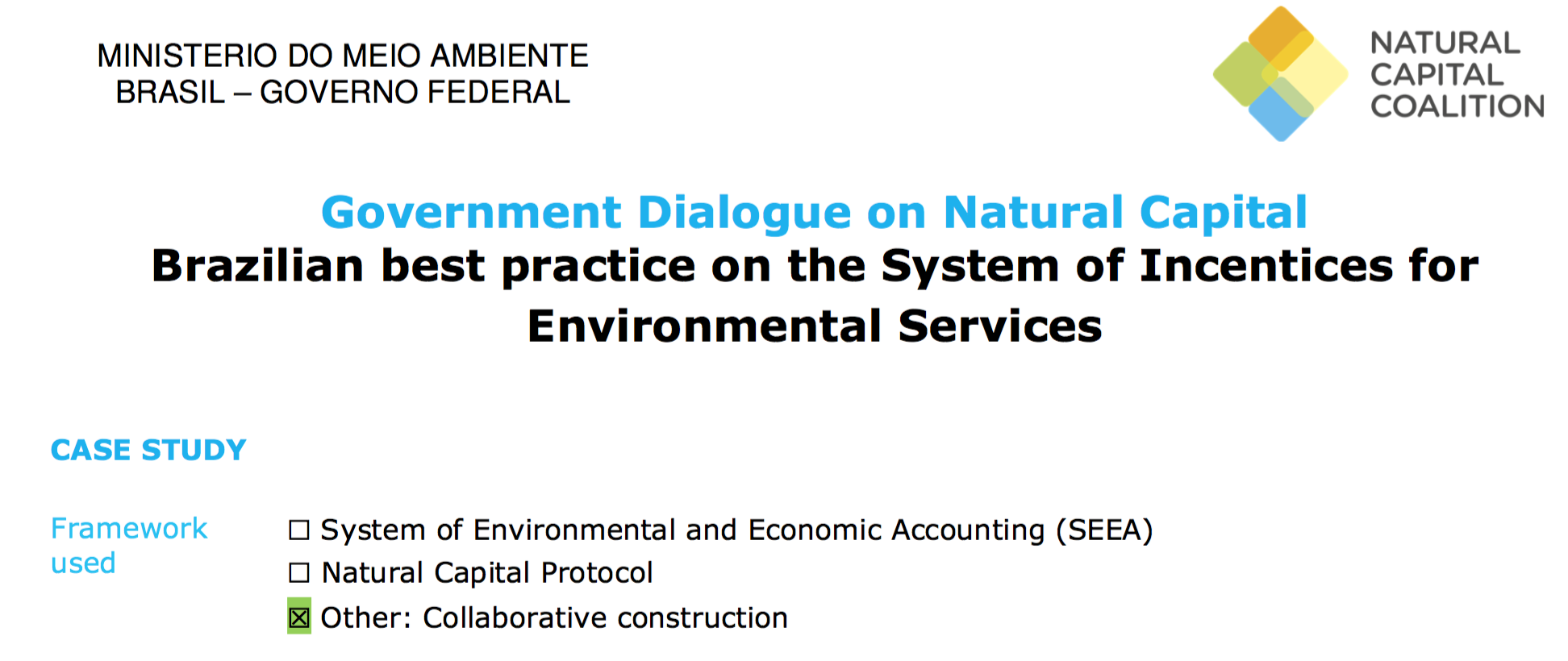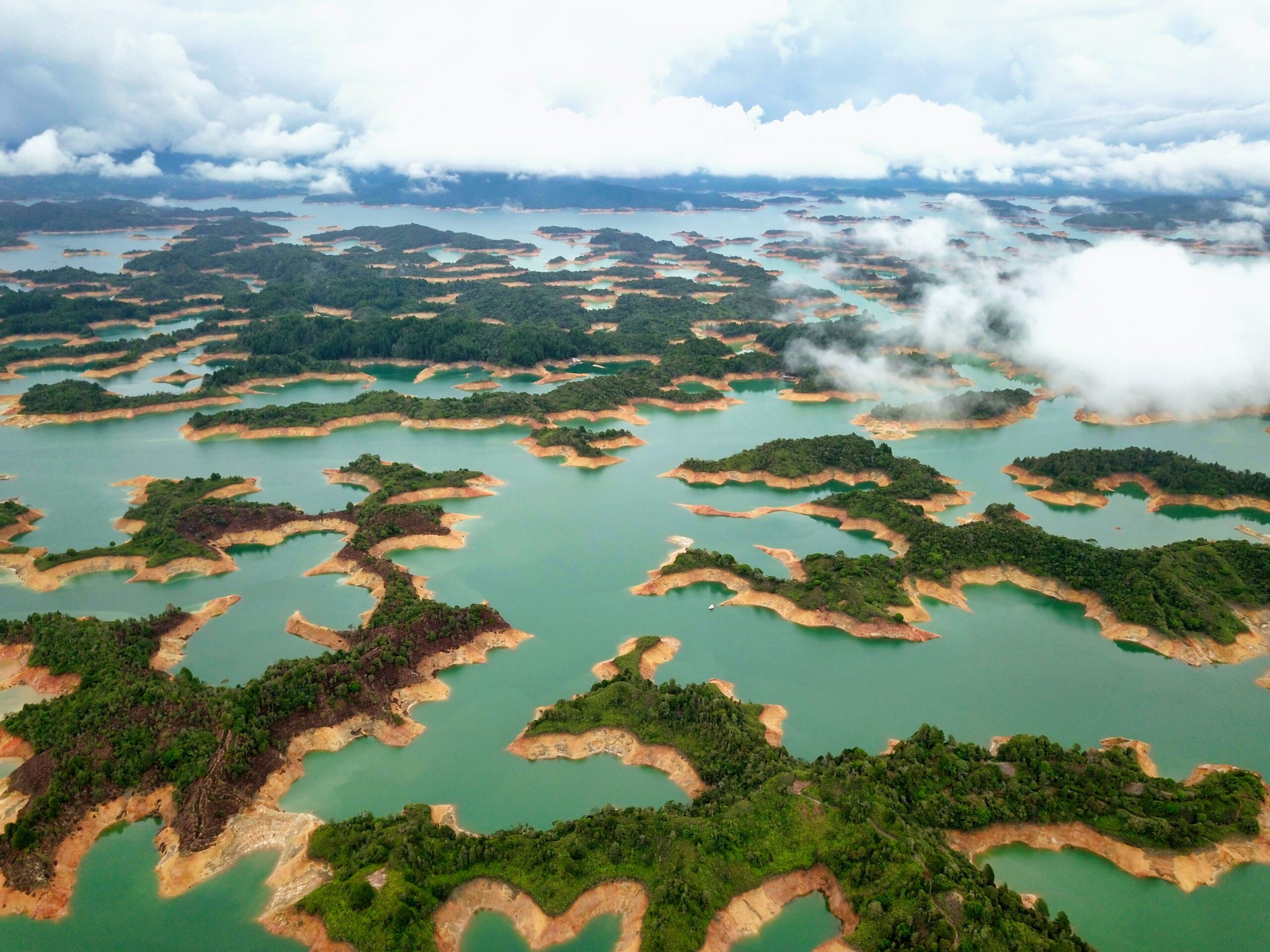The organization/ department in brief
The Secretary of Biodiversity from the Ministry of the Environment – MMA, supports the development of policies for the conservation and sustainable use of ecosystems, biodiversity and forests in Brazil, in an articulated and agreed manner with public actors and society for sustainable development in Brazil. Brazil and Germany have a history of cooperation of almost 50 years, in biodiversity conservation and sustainable use of ecosystems. Considering this scope, both countries joined together the project “Regional-Local TEEB Project: Biodiversity Conservation through the integration of Ecosystem Services into Public Policy and Business Action“, also known as TEEB Regional-Local, or TEEB R-L.
This project is jointly implemented by the Brazilian government, under the coordination of the Secretary of Biodiversity, of the Ministry of the Environment, and by the German government, though the German Federal Ministry for the Environment, Nature Conservation and Nuclear Safety (BMU), applying funds from the International Climate Initiative (IKI) and through its cooperation agency, Deutsche Gesellschaft für Internationale Zusammenarbeit (GIZ) GmbH.
The Project started in 2012, and the main objective was to foster biodiversity and ecosystem consideration in public policies planning and decision making. To accomplish this, project focused in activities to strengthen the dialogue between public and private actors, and activities focused on the development and implementation of study cases at local and regional levels to provide knowledge and models to influence broader scales decision making. Strategic processes (e.g. policies, plans, programs, instruments) at regional and local levels, that could contribute with innovative approaches in the valuation and conservation of biodiversity and ecosystem services, and that could produce information for decision-making were selected and used as demonstrative cases for broader scales and national policies.
The Regional-Local TEEB Project was originally scheduled to run until October 2016 but was extended until May 2019 through the inclusion of a new component, the support of the Brazilian government to the development of environmental economic accounts. More info here.
Why was this undertaken?
Acre’s State System of Incentives for Environmental Services (SISA) promotes, controls and manages local initiatives to reduce emissions from deforestation and environmental degradation, as well as other activities related to ecosystem services in the state. The ecosystem services included in System of Incentives for Environmental Services are carbon sequestration, maintenance of water and hydrological services, conservation of soils, conservation of biodiversity, and valuation of traditional knowledge, most of which do not yet have specific regulations. The carbon sequestration program, called Incentives for Environmental Services-Carbono or ISA-Carbono, is the first to be implemented under System of Incentives for Environmental Services. Its general objective is to reduce greenhouse gas emissions from deforestation and degradation, following the State Plan for Control and Prevention of Deforestation. Through 2014, it has been implemented primarily through the state’s existing policies and programs to reduce deforestation including the ZEE and the Valuation policy.
In order to continue the implementation of System of Incentives for Environmental Services, the Institute of Climate Change and Regulation of Environmental Services of Acre – IMC proposed the creation of the second program – Acre Socio-Biodiversity Conservation Program – which aims to promote the appreciation of ecosystem services linked to socio-biodiversity and the development of sustainable value chains. This program started to be drafted in 2016, since when the Regional-Local TEEB Project has been supporting the process of discussion and improvement of the draft law with the segments of society.
What was the scope?
Socio-biodiversity is the set of traditional knowledge from traditional populations that lives in forested landscapes, which they use to manage their environment, for the development of their communities and preservation of their culture and life habits. Socio-biodiversity involves a set of interactions between ecosystems and their ecological processes, added to the socio-cultural diversity and products derived from these relations.
The Incentives for Environmental Services – Conservation of Socio-biodiversity program was based in two components: (i) Conservation and (ii) Value Chains. The conservation component guarantees the protection and maintenance of environmental and ecosystem services, increasing the supply of goods and products associated with the development of value chains. The component of value chain development, through good practices and sustainable business, reduces the risk of environmental degradation and allows the maintenance of stocks, positively influencing the conservation of environmental services.
The Regional-Local TEEB Project involvement was focused on the participatory process to improve the program, through technical advisory and facilitation techniques (provided by a specialized external consultancy), which ensured research, preparation of texts, methodological tools, moderation and reporting. Promoting the discussion of topics such as concepts, guidelines, objectives, principles, governance, economic instruments and financial mechanism of the program.
The Working Group was attended by representatives of the Federal Government, the State Government and civil society. Initially, there were four meetings to the work group and two workshops for a broad audience of actors, thus formulating a participatory construction of this program. The workshop participants showed the importance of holding sectoral meetings to present the proposal and improve the content, prior to conducting public consultations, namely for the business public and for representatives of traditional peoples and communities. To this end, sectoral workshops were planned with the main segments of society involved: extraction agents, indigenous peoples and the business sector.
What was the role of the Government?
The Ministry of Environment through the Regional-Local TEEB Project supported the local government in meetings and workshops to support the process of discussion and improvement of the draft law about the Acre Socio-Biodiversity Conservation Program. The Institute of Climate Change and Regulation of Environmental Services of Acre was the one who requested the support for the improvement of the program, thus the local Government is the leadership of the project that articulated several sectors of society to help the creation of their state program.
What were the results?
The main results were the four meetings of the Working Group, the first addressing principles, definitions, guidelines and objectives of the Incentives for Environmental Services of Socio-biodiversity; the second to discuss the providers and beneficiaries of the program; the third was about the instruments of governance; and the latter about the instruments of economic and financial incentive. From these discussions was generated a scope of the program and the results were organized and later presented in an enlarged workshop. According to the director-president of the Institute of Climate Change and Regulation of Environmental Services of Acre, Magaly Medeiros, the process wouldn’t have been possible without the support of the Regional-Local TEEB Project and the broad participation of the state institutions involved. The workshop discussed key aspects of the program, and the discussions conducted generated concrete proposals and the scope of the program being approved by all the people present.
Following the workshop participants suggestions, the sector workshops were programmed. These workshops aimed to provide: knowledge of what is System of Incentives for Environmental Services, the Incentives for Environmental Services- Carbon and the Incentives for Environmental Services Socio-biodiversity; the opportunity for the understanding and manifestation of the points of agreement and disagreement of the participants in relation to Incentives for Environmental Services Socio-biodiversity; opening for suggestions of improvement to the program; the dissemination of the next steps and the demonstration of how the participants can continue accompanying and contributing in the construction of the program; the possibility of them recognizing their role and the benefits of the program for their community.
The workshops had some critical points, which could be improved, in relation to mobilization and participation. The limited time for mobilization and the existence of other events and meetings in the near future meant that participation was reduced. So it is important, in a participatory process, to focus on this mobilization. Stimulating a more informal conversation and presentation, improving visualization and using more direct language also will facilitate the communication and interaction with present participants.
Next steps
The results of this work will serve as input for the reorganization of the proposed program, incorporating the demands and contributions of society. The next phase involves public hearings in the main regions of the state, where it is expected to submit the proposal to a wide evaluation of a set of institutions involved with the topic in the state.
Encouraging the participation of private initiative (companies, market, investors) is one of the principles of the Regional-Local TEEB Project, which assumes that the interaction between biological diversity and socio-cultural diversity development-oriented, considering also private sector participation is needed to support the inclusion of services and products of natural capital, in the economic system. This delivers a valuable proposal where won (nature) – wins (society).













